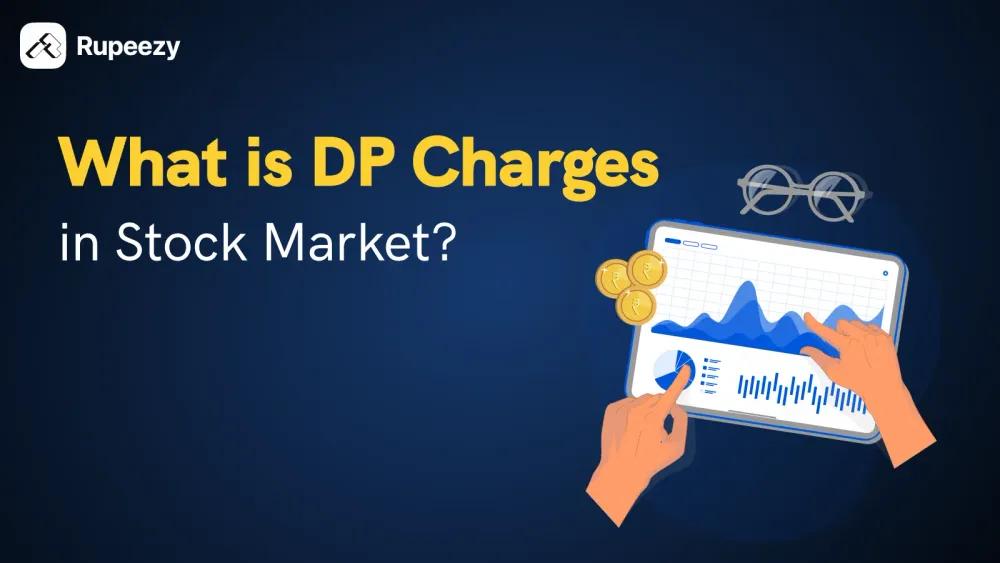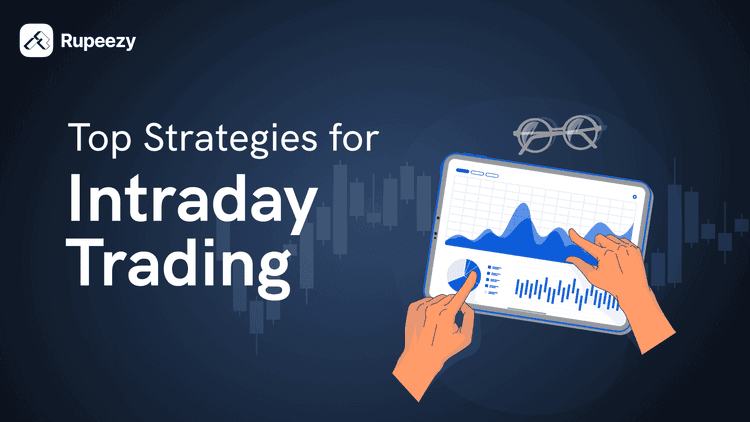What Are DP Charges (Depository Participant Charges)?


00:00 / 00:00
Understanding the various charges in stock trading is essential for managing your costs effectively. Among these, DP charges (Depository Participant charges) are particularly important when selling shares. By learning how they work, who imposes them, and how to calculate them, you can make more informed trading decisions and retain a larger share of your profits. This article will provide you with everything you need to know about DP charges.
Who are Depository Participants (DPs)?
Depository Participants are SEBI-registered financial institutions or brokers that act as a link between investors and depositories like NSDL and CDSL. They maintain investors' securities accounts, ensure seamless transactions, and make trading easier and more secure while meeting strict regulatory standards.
What are DP Charges?
DP charges (depository participants charges) mean the fees you pay each time you sell shares through your demat account. These charges apply for using the services of DPs like NSDL or CDSL, who electronically handle and secure your securities. Whenever you sell shares, your DP charges a fixed fee to cover the transfer and management of the stocks held in your demat account.
In India, when investors sell shares, depository participants request NSDL or CDSL to release them from the demat account. Also, it's important to note that DP charges are fixed per transaction, meaning you’ll pay the same fee whether you sell one share or a thousand
Who Levies DP Charges?.
Depositories like NSDL and CDSL facilitate secure transactions but do not charge investors directly. Instead, they bill the DP, who then passes on the transaction charges to investors. In other words, the Depository Participant imposes the DP charges. These charges apply once per scrip, even if you sell multiple shares in a single transaction. DPs ensure the smooth handling of your securities and serve as a crucial link between investors and the depositories.
Why are DP Charges Levied?
DP transaction charges are levied because brokers are acting as Depository Participants and cannot hold investors' shares directly. Instead, they must keep them with depositories like NSDL or CDSL. These depositories charge brokers significant fees, including membership and transaction costs. To recover these expenses, brokers pass on a portion of DP transaction charges to the investors. Without this, brokers wouldn't be able to offer the required infrastructure for trading under strict regulatory compliance.
How DP Charges are Calculated?
DP charges are fixed, meaning they don’t depend on the number of shares sold. Typically, you have to pay Rs.29.50 which is inclusive of GST. This amount remains fixed per sell order irrespective of the number of shares you sell.
How Much DP Charge is Charged by Rupeezy?
Apart from the standard DP charges that are charged while you place your sell orders, the Depositories also charge other fees that are also called the Depository participant charges. At Rupeezy, DP charges are set to be budget-friendly, especially for frequent traders. As a discount broker, Rupeezy ensures you don’t overspend on trading fees. Here’s a breakdown to help you understand the costs:
Monthly Maintenance Charge (MMC): If your demat account was opened after June 15, 2024, you pay zero for the MMC, making it one of the lowest DP charges out there. Accounts opened earlier are billed just Rs 25 + GST monthly.
Pledge & Unpledge Charges: Rupeezy charges Rs 25 + GST per transaction to use shares as collateral, keeping it affordable for customers needing loans.
Payin Securities Charges: If you transfer stocks to your account, it’s Rs 25 + GST. This applies each time, ensuring all transactions are covered but at a controlled cost.
Check out Rupeezy's pricing to learn more
Is DP Charges Refundable?
No, DP charges are not refundable. When you execute a transaction, these charges are deducted directly from your Demat account balance at that moment. This means you won’t get that money back once the charges are applied. They are treated as a service fee, and it's important to know this when planning your trades to avoid surprises in your account balance. Always consider these costs as part of your overall trading expenses.
Conclusion
Understanding DP charges is essential for every investor, as they directly impact your trading costs. With Rupeezy, you can take advantage of some of the lowest DP charges in the market, helping you save money on transaction fees and make trading more affordable.
By choosing Rupeezy, you gain access to a user-friendly platform with low-cost trading options. Don’t miss out on these savings! Explore Rupeezy today and open a Demat account to start your journey towards cost-effective investing.
FAQs
Q. Can I avoid DP charges?
A. No, you cannot avoid DP charges. These charges apply every time you sell shares. They are a necessary part of trading through a broker.
Q. When are DP charges applicable?
A. DP charges are applicable whenever you sell shares in your Demat account. They get deducted right after you execute the trade.
Q. How can I pay DP charges?
A. You pay DP charges automatically when you sell shares. The broker deducts these charges from your trading account balance.
Q. What benefits do I get from paying DP charges?
A. Paying DP charges allows you to hold safely and trade shares. It ensures that your transactions are secure and processed efficiently.
Q. How often are DP charges deducted from my account?
A. DP charges are deducted every time you sell shares. You will see these charges regularly in your account if you trade frequently.
The content on this blog is for educational purposes only and should not be considered investment advice. While we strive for accuracy, some information may contain errors or delays in updates.
Mentions of stocks or investment products are solely for informational purposes and do not constitute recommendations. Investors should conduct their own research before making any decisions.
Investing in financial markets are subject to market risks, and past performance does not guarantee future results. It is advisable to consult a qualified financial professional, review official documents, and verify information independently before making investment decisions.
Open Rupeezy account now. It is free and 100% secure.
Start Stock InvestmentAll Category









